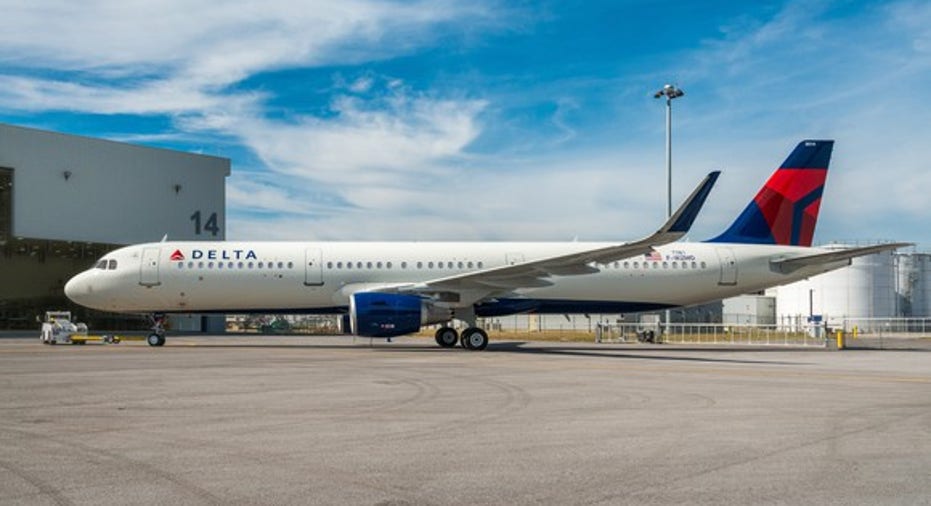JetBlue Should Respond Aggressively to Delta's Growth in Boston

JetBlue Airways (NASDAQ: JBLU) has dramatically improved its profitability in the past few years. Rising margins in Boston -- JetBlue's second-largest focus city -- have been a big part of that story.
That said, JetBlue faces a growing threat from Delta Air Lines (NYSE: DAL). With Delta starting to expand rapidly in Boston, JetBlue needs to speed up its own growth plans there to ensure that it remains the top choice for Boston-based business travelers.
JetBlue's Boston success story
The Boston air travel market has historically been highly fragmented, with no dominant airline. Furthermore, the legacy carriers all cut capacity there during and after the Great Recession, creating a vacuum of sorts.
JetBlue has seized this opportunity. Today, it flies from Boston to 63 destinations nonstop, up from just 35 nonstop destinations in mid-2010. At times, this growth has put pressure on JetBlue's margins. As recently as late 2013, JetBlue was barely profitable in Boston and its profit margin there was well below the company average.
JetBlue has become the largest airline in Boston. Image source: JetBlue Airways.
However, JetBlue has reached a critical mass in Boston in the past few years. Indeed, with more than 150 daily departures, it is the city's largest airline and offers nonstop flights to most of the top business (and leisure) markets. This has allowed it to aggressively court business travelers. As a result, Boston has become JetBlue's most profitable focus city.
Delta is encroaching on JetBlue's turf
While JetBlue is now the largest carrier in Boston, it isn't going unchallenged. Delta Air Lines has emerged as its most serious competitor there, thanks to a recent growth spurt.
In 2016, Delta announced new routes from Boston to San Francisco, Nashville, and several Caribbean destinations. Last week, it announced new nonstop routes to Austin, Texas; Buffalo, New York; Jacksonville, Florida; Kansas City, Missouri; and Norfolk, Virginia. Delta also plans to add more flights to Nashville and to several cities in Florida.
By this fall, Delta says that it will operate more than 100 peak-day departures from Boston to 32 destinations. 12 of those destinations have been added since last November.
Why it matters for JetBlue
Delta's most recent round of expansion in Boston isn't likely to have a big direct impact on JetBlue Airways. First, JetBlue doesn't even fly to Kansas City and Norfolk. Second, American Airlines will exit the Boston-Buffalo market in late August, a few weeks before Delta will start serving that route. Thus, the overall level of competition in that market won't change much.
Delta's new flights to Austin and Jacksonville will increase competition on those routes, but those markets aren't big enough to have a meaningful impact on JetBlue's overall results.
Nevertheless, it would be dangerous for JetBlue to ignore Delta's growth. While JetBlue offers the most nonstop flights and nonstop destinations from Boston, Delta can offer one-stop service from Boston to a large swath of the globe via its hubs and its numerous international partnerships. This global connectivity is a big draw for business travelers.
Delta is threatening JetBlue's leading position in Boston. Image source: Delta Air Lines.
JetBlue should probably respond by accelerating its existing plan to grow to 200 daily departures in Boston -- and then set a new, even more ambitious goal. Boston remains underserved relative to similar-sized cities in the U.S., and there are numerous midsized cities in the eastern half of the U.S. that could be ripe for nonstop JetBlue flights.
Flights to Europe could be an even bigger opportunity. JetBlue has the right to convert its A321neo orders to the long-range A321LR variant beginning in the second half of 2019. The company still hasn't decided whether it will exercise this option, but it has hinted that the A321LR could enable nonstop flights from Boston to Europe.
The best way for JetBlue to maximize its long-term profitability in Boston is to ensure that it remains the carrier of choice for business travelers there. That means erring on the side of growth and network expansion to improve its position vis-a-vis Delta Air Lines.
In the near term, JetBlue could face some margin pressure as it tries to gain share and stimulate new traffic in Boston. However, this strategy could eventually make JetBlue the dominant carrier in Boston, a position that would make its high margins more sustainable.
Find out why JetBlue Airways is one of the 10 best stocks to buy nowMotley Fool co-founders Tom and David Gardner have spent more than a decade beating the market. (In fact, the newsletter they run, Motley Fool Stock Advisor, has tripled the market!*)
Tom and David just revealed their ten top stock picks for investors to buy right now. JetBlue Airways is on the list -- but there are nine others you may be overlooking.
Click here to get access to the full list!
*Stock Advisor returns as of May 1, 2017
Adam Levine-Weinberg owns shares of Delta Air Lines and JetBlue Airways and is long January 2019 $10 calls on JetBlue Airways. The Motley Fool recommends JetBlue Airways. The Motley Fool has a disclosure policy.



















